Athena

Brief Synopsis
Cast & Crew
Richard Thorpe
Jane Powell
Debbie Reynolds
Virginia Gibson
Nancy Kilgas
Dolores Starr
Film Details
Technical Specs

Synopsis
After rehearsing his television show, singer Johnny Nyle is greeting his rapturous teenage fans when he is served with a subpoena. Johnny goes to the office of his former Navy colleague, attorney Adam Calhorn Shaw. The stiff, humorless Adam, who comes from a distinguished family, is meeting with his law partners, Grenville, Griswalde and Tremaine, who are advising him on his upcoming congressional campaign. Adam admits Johnny, who says that his former agent is suing him for back commissions, and agrees to help him, instructing him to come by his home later that afternoon. Adam then goes to the nursery to complain about some peach trees he bought for his garden. There he meets an attractive young woman named Athena Mulvain, who tells him she is a numerologist and offers to help him mulch the peach trees. Athena's offbeat ways make Adam uneasy, however, and he declines her offer. Later, Adam is at home having a cocktail with his fiancée, Beth Hallson, when the outspoken Athena shows up. After Beth leaves, Athena happily mulches the peach trees, then gives Adam a big kiss. On her way out, Athena passes Johnny and announces her intention to marry Adam. After a quick numerological analysis, Athena determines that Johnny would be a perfect match for Minerva, one of her six sisters. Leaving the paperwork for his case in Adam's mailbox, Johnny impulsively goes with Athena to meet her sister at the family's health food store. The following morning, Adam is surprised to find Athena back at work in his garden. Beth drops by and reacts jealously to Athena's presence, and Athena slips away before Adam can speak to her. After Adam's secretary tries in vain to track Athena down, Johnny comes by the office and mentions his own encounter with Athena, and tells Adam where to find her. That evening, Adam goes to the Mulvains' hilltop home, where he finds Athena's sisters dancing in the moonlight while scantily clad muscle men lift weights in the courtyard. Adam meets the robust Grandpa Ulysses, a health food and exercise enthusiast, who introduces him to Ed Perkins and Bill Nichols, the body builders he is training for the Mr. Universe competition. While the family and friends sit down to a supper of peanut burgers, Adam takes Athena aside and tells her there can be no relationship between them. Athena asks Adam to kiss her goodbye, and their embrace quickly grows passionate. When Adam returns home after midnight, bearing an bouquet of ginger blossoms he has been instructed to eat, Beth graciously ends their engagement. Grandma Salome stays up most of the night working out an astrological chart for Adam and Athena, and although she sadly reports that the stars disapprove of Adam's lifestyle, Athena refuses to give up on him. The following day, Adam's casual dress and chipper demeanor puzzle his partners, who demand to know more about Athena. Meanwhile, Athena brings her sisters to Adam's house, and they set about redecorating it for greater cosmic harmony. When Grenville and Tremaine see the house, they tell Adam he must get rid of Athena in the interest of his political career, but Adam assures them that Athena can behave like other people when necessary. To prove it, Adam brings her as his date to an elegant political reception that evening, and Athena charms the guests with her beauty and singing. However, the vegetarian Athena gets into a quarrel with Beth in the buffet line, and flees to the nightclub where Minerva is watching Johnny perform. After comforting her sister, Minerva tells Johnny that if Adam and Athena split up they must, too, as the stars dictate that Athena must marry first. Adam is waiting for Athena when she returns home, and declares his love for her. As he leaves, Grandma cautions Adam to avoid crowds the next day. However, Adam shows up at the Mr. Universe contest the following evening and watches as Grandpa presides over the competition, which Ed narrowly wins. At the press conference afterward, Ed jealously warns Adam to stay away from Athena, and Adam uses his Navy judo training to throw the strong man to the ground. With the television cameras rolling, Athena angrily breaks up with Adam. Later that evening, Adam is visited by his partners, who gravely proclaim his political career dead and offer him an assignment in Bolivia. Johnny then comes by and informs Adam that Athena has consented to Grandpa's wish that she marry Ed. The two men immediately head to the Mulvain home, and Adam criticizes Grandpa for being judgmental. The following morning, Athena comes to Adam's house and says her grandparents agree that love will help them overcome their differences. Later, Adam, Athena, his business partners and the entire Mulvain clan happily sit down to a banquet of fresh fruit.

Director

Richard Thorpe
Cast
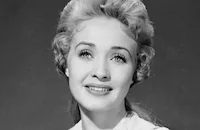
Jane Powell

Debbie Reynolds
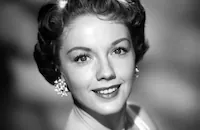
Virginia Gibson

Nancy Kilgas

Dolores Starr
Jane Fischer
Cecile Rogers

Edmund Purdom
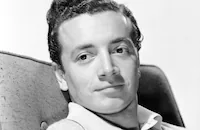
Vic Damone

Louis Calhern

Evelyn Varden

Linda Christian
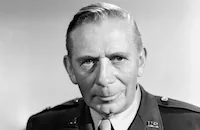
Ray Collins
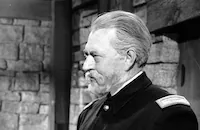
Carl Benton Reid
Howard Wendell
Henry Nakamura

Steve Reeves

Kathleen Freeman
Richard Sabre
Wilson Wood
James Cronin
William Lewin
Harry Mackin
Allen Ray

Harlan Warde
Lucille Knoch
Perry Sheehan

Peter Leeds
Fred Essler
Maurice Marsac

Bess Flowers
Lillian Culver
Grace Hayle
Paul Power
Guy Prescott
Pat Flaherty
James Hyland
Michael Kostrick

Nicky Blair
Harry Cody
Donald Kerr
Bob Dix
Madge Blake
Marilyn Perry
Crew
Jeff Alexander
Jeff Alexander
Jean François Alfred Bayard
Valerie Bettis
Ralph Blane
Gaetano Donizetti
Alvord Eiseman
Dave Friedman
Cedric Gibbons
Bert Goodrich
Henry Grace
Arvid Griffin
Paul Groesse
Sydney Guilaroff
Van Alen James
Milo Lory
William Ludwig
Walter March
Hugh Martin
Wesley C. Miller
Joe Pasternak
Robert Planck
Walter Plunkett
Helen Rose
Gene Ruggiero
Jules Henri Vernoy De Saint-georges
Leonard Spigelgass
George Stoll
George Stoll
William Tuttle
Robert Van Eps
Charles Wallace
Edwin B. Willis

Videos
Movie Clip



Trailer
Film Details
Technical Specs

Articles
Athena
At the start, however, there were a few sour notes. Athena had originally been developed by swimming star Esther Williams, director Charles Walters and writer Leo Pogostin during lunch breaks while shooting Easy to Love (1953). Their original idea was to cast Williams as a reincarnated Greek goddess swimming her way to happiness. But while Williams was out on maternity leave, studio head Dore Schary decided to put the film into production without her, turning all the swimming scenes into songs for Powell. By the time Williams found out, the film was already in production. Her complaints only served to drive a wedge between herself and Schary (she would make one more film before leaving the studio) and gave gossip columnists the headline "The Mermaid on the Lot has been beached."
Richard Thorpe, who had taken over the direction from Walters, was hardly enthusiastic about the film. After swashbuckling hits like Ivanhoe and The Prisoner of Zenda (both 1952), he might have felt he deserved better. According to Powell, after each scene, he would simply toss the script pages over his shoulder and walk away.
For her part, Powell thought Athena was a charming piece of fluff. Made just after her biggest success, Seven Brides for Seven Brothers (1954), it gave her another chance to work with producer Joseph Pasternak, who had helped make her a star at MGM, and reunited her with frequent co-stars Debbie Reynolds and Damone. In her memoirs, she would suggest the film was 20 years ahead of its time, dealing with what would become "new age" issues like vegetarianism, mysticism and health consciousness.
For Reynolds, the picture was less exciting. It was her fifth picture in just over a year and the first of her MGM films she really didn't care for. It didn't help that she made the film just as a long relationship with Robert Wagner was coming to an end.
Ironically, the film would put Reynolds in the middle of one of Hollywood's most torrid affairs. Co-stars Edmund Purdom and Linda Christian had gotten close when Christian and her husband, Tyrone Power, had tried to help the British actor with his failing marriage. Instead, she and Purdom had found a common bond in their marital problems and embarked on an affair. Christian was open about the relationship with her husband, particularly in light of his own infidelities. But he had ordered her to call off the affair. Instead, she and Purdom spent most of their lunch hours together. On a day the company was shooting exteriors, the two went off to explore the studio foliage. Reynolds was giving an interview during lunch when she saw Power's car driving by. She took off in search of the twosome, combing the back lot until she spotted a bush shaking and called out to Christian to warn her. The actress emerged, straightening out her dress, and rushed off to meet her husband with a cry of "Oh, darling, it's so unexpected" (quoted in Reynolds' autobiography, Debbie: My Life). For her part, Reynolds wouldn't remain lovelorn for long. During filming the set was visited by a young singing star who was already one of her biggest fans -- Eddie Fisher.
Christian -- an exotic beauty of Spanish, French, German and Dutch descent -- was cast in a role almost essential to any Powell film, the sophisticated woman whose manicured beauty serves to offset the leading lady's more natural look. She had gotten her start with the help of Errol Flynn, who even gave her her screen name in memory of the first character he had played on film, Fletcher Christian in an Australian version of Mutiny on the Bounty entitled In the Wake of the Bounty in 1933. She became the first Bond girl when she starred in a 1954 television version of Casino Royale, with American actor Barry Nelson as Bond, just before making Athena. After divorcing Power, she would marry Purdom briefly, though her career never recovered from the scandal, and she did most of her later work in Europe.
Supporting player Steve Reeves would also relocate to Europe for film work. After generating headlines for winning the Mr. Universe title (a bodybuilding award his character would also win in Athena), he had taken a shot at acting with this film and Ed Wood, Jr.'s hilariously bad Jail Bait (1954), in which the muscle-bound star changes his shirt in a busy police station for no apparent reason other than to display his torso. Although Athena was hardly a box-office champion and was not exactly welcomed by critics, it caught the eye of Italian director Pietro Francisci's daughter, who recommended Reeves for the title role in her father's planned film version of the adventures of Hercules (1958), an international hit that made Reeves a star.
Producer: Joe Pasternak
Director: Richard Thorpe
Screenplay: William Ludwig, Leonard Spigelgass
Cinematography: Robert Planck
Art Direction: Cedric Gibbons, Paul Groesse
Musical Direction: George Stoll
Cast: Jane Powell (Athena), Debbie Reynolds (Minerva), Virginia Gibson (Niobe), Edmund Purdom (Adam Calhorn Shaw), Vic Damone (Johnny Nyle), Louis Calhern (Grandpa Mulvain), Evelyn Varden (Grandma Salome Mulvain), Linda Christian (Beth Hallson), Ray Collins (Mr. Tremaine), Carl Benton Reid (Mr. Griswolde), Kathleen Freeman (Miss Seely).
C-96m. Letterboxed. Closed captioning.
by Frank Miller

Athena
Quotes
Trivia
When the daughter of Italian director Pietro Francisci saw this film, she suggested bodybuilder-turned-actor Steve Reeves for the title role in her father's upcoming production _Fatiche di Ercole, Le (1958) ()_ .
Notes
The working title of the film was Adam and Athena. The order of the opening cast credits differs from that of the end credits. In the opening credits, the leading actors are listed in the following order: Jane Powell, Edmund Purdom, Debbie Reynolds, Vic Damone, Louis Calhern and Linda Christian. A May 1952 Hollywood Reporter news item announced that Elizabeth Taylor would star in the film and Arthur Freed would produce. A March 1953 Hollywood Reporter news item named Charles Walters as director, and October 1953 news items reported that Esther Williams, Janet Leigh, Ann Miller and Elaine Stewart would star.
Studio publicity material contained in the film's production file at the AMPAS Library reveals that George Sidney was named as the director in September 1953. A March 4, 1954 news item in Hollywood Reporter stated that Edwin H. Knopf would be the film's producer. Hollywood Reporter news items from May and June 1954 add Charles Murray, Jr. and body builders Joe Baratta (Mr. California) and Irwin Koszewski (Mr. Ohio) to the cast, but their appearance in the final film has not been confirmed. The song "The Girl Next Door," sung in the film by Vic Damone, was first sung by Judy Garland in the 1945 M-G-M film Meet Me in St. Louis, under the title "The Boy Next Door" (see AFI Catalog of Feature Films, 1941-50).

Miscellaneous Notes
Released in United States Fall November 1954
Released in United States Fall November 1954














